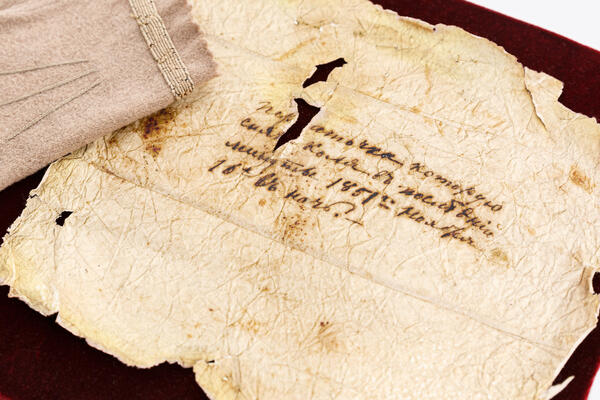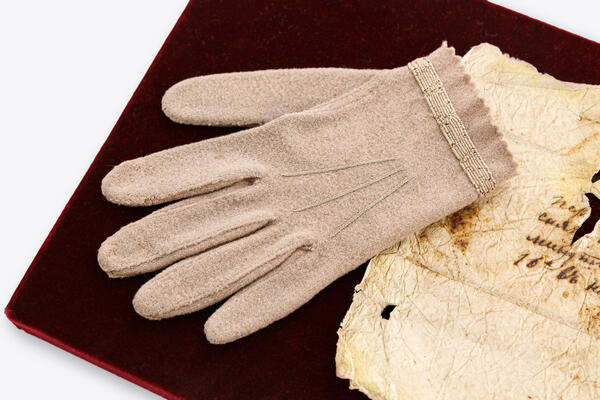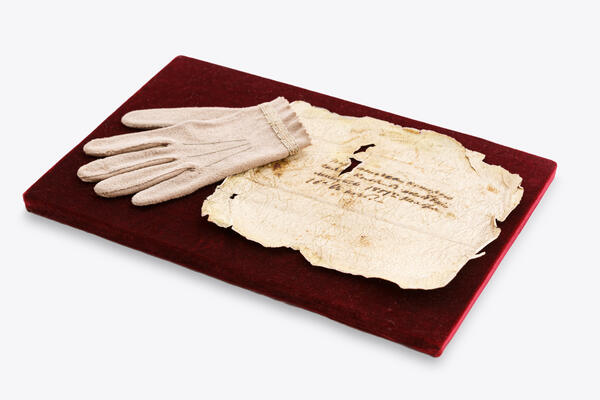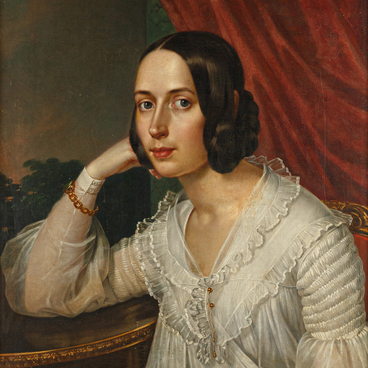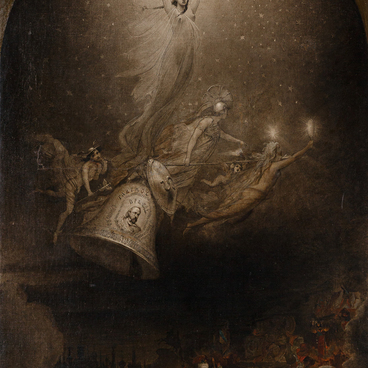Kolya
was the fourth child of Alexander Herzen and his wife Natalya. Two of his older
siblings died in infancy. He was named after Herzen’s close friend Nikolay
Platonovich Ogarev. In his diaries and letters, Alexander Herzen wrote jokingly
about his infant son,
Glove of Kolya, son of Alexander Herzen
I am not yet acquainted with the boy enough, neither is he with me, but his talents are showing at a very early age — he already sneezes and holds out his hands…” He also wrote, “There is something effeminate about Nikolenka, there is some infinite gentleness in his childish features, a cute, kind, and constantly laughing face.
Kolya was born deaf. This was discovered by the family friend Timofey Nikolayevich Granovsky. While playing with Kolya on the carpet, he brought his pocket watch close to the boy’s ear and realized he did not hear anything.
In early August 1851, the writer’s mother Luiza Ivanovna, with her eight-year-old grandson Kolya and his teacher Johann Spielmann, went to Paris for treatment. After a long absence, on November 14, Luiza Ivanovna wrote a letter from Marseille in which she wrote that the next day they would take the steamer “Ville de Grasse” and go to Nice. However, they never reached their destination. Around 3 am, two steamers collided near the island of Hyéres. The shipwreck took the lives of several people who were dear to Alexander Herzen.
“My mother, my Kolya, and our good Spielmann had vanished without a trace. Nothing was left of them; among the things salvaged there was not a scrap belonging to them. There could be no doubt of their death, ” Alexander Herzen wrote. The family’s maid, who survived the catastrophe, kept a glove that belonged to Kolya and gave it to the writer. Nowadays, the glove is part of the museum’s collection. Natalya Alexandrovna wrote a note, “This is the little glove that Kolya took off during the final moments of his life on the night of November 16, 1851.”
Natalie, who had only just recovered, had not the strength to bear this blow. From the day of the loss of my mother and Kolya, she never recovered her health again. The fright, the pain remained: they entered into her blood. Sometimes, in the evening or the night, she would say to me, as though asking for my help, ‘Kolya, Kolya is always with me; poor Kolya, how frightened he must have been, how cold he was! and then the fishes, the lobsters! ’ She would take out his little glove, which had been safely in the maid’s pocket — and a silence would follow, that silence in which life flows away as though a sluice has been raised.
In 1974, Kolya’s glove and the note of Natalya Herzen were donated to the museum by the writer’s heirs, Natalya Petrovna Herzen and Léonard Rist.

